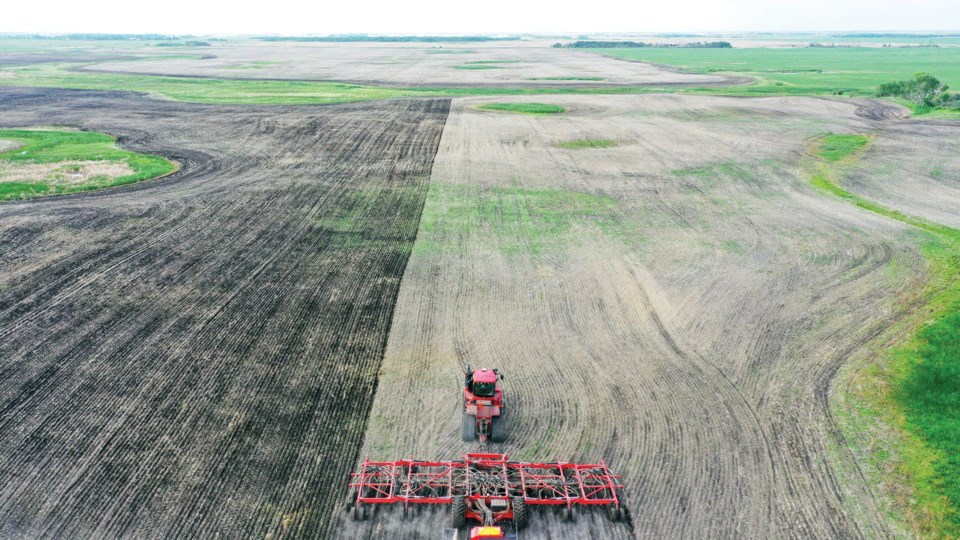MOOSOMIN — Harvest of Hope had help from farmer volunteers, Vaderstad, and local agriculture companies to get the crop seeded this spring.
Funds raised from the crop are donated to local food banks, in addition to the Canadian Foodgrains Bank, which provides food assistance for people in need around the world. The federal government matches donations to the Foodgrains Bank, allowing the help to go further.
Vaderstad Industries of Langbank is key to the seeding effort, and several other businesses from Moosomin and surrounding area helped contribute towards the project.
“Vaderstad has done all of the seeding in the last two years,” said Mark Bateman of the Harvest of Hope committee. “They bring out their seeders, and they’re just a tremendous help, taking care of that for us.
“The wheat seed was provided by Crosson Farms and Parrish and Heimbecker Grain Elevator. The fertilizer and chemical was provided by Sharpe’s Soil Services.
“The spraying was done by Pattison Agriculture Limited, John Deer. Also a huge thank you to Murray Bruce Farms for heavy harrowing ahead of the seeder, and to Craig Roy for supplying semis, and hauling the fertilizer and seed.”
Last year, Harvest of Hope brought in revenue of $130,000 and after input costs, an estimated $70,000 was donated to the Canadian Foodgrains Bank.
Out of the 33 Canadian Foodgrains Bank projects that covered approximately 3,500 acres in Saskatchewan in 2022, Moosomin Harvest of Hope was the largest growing project in the province.
Although the organization has about six core members, there are 40 to 50 volunteers who help with the growing project over the course of the year.
“We’re getting more and more help and we have been donating to the local food banks as well as the Foodgrains Bank, so we can help here and overseas. Last year we gave $15,000 to the food bank here in Moosomin and $4,000 went to the Rocanville Food Bank,” said Bateman.
“Usually it all went to the Foodgrains Bank before, but I think that’s paying more dividends for more help coming locally if we can keep some of the produce here.
“The nice part is the government matches it. We had record-breaking profits last year with $20 a bushel canola and it ended up making over a couple hundred thousand dollars.”
After hearing feedback from the community, Bateman said the not-for-profit organization decided to donate their proceeds to local food banks as well.
“I was getting approached by people saying that others would be more willing to help if we donated locally as well as to the Foodgrains Bank,” said Bateman.
“The Foodgrains Bank does great things too, this is their largest parcel in all of Western Canada. I just think it would go a long way if we keep some of it locally because I know we’re going to get more help locally also, and there isn’t just a need in other countries, there’s a need here, too.”
Bateman spoke about how supportive people from the community are during the growing season, and why he dedicates his time to the project.
“We get so much help,” he said. “Pethick Farms always sends out combines from McAuley, and all of the machine dealers send their great big machines on harvest day.
“I volunteer because I’ve got the time to do it and it’s very worthwhile.
“We have the ability to help, and so we should help, it’s as simple as that.”



